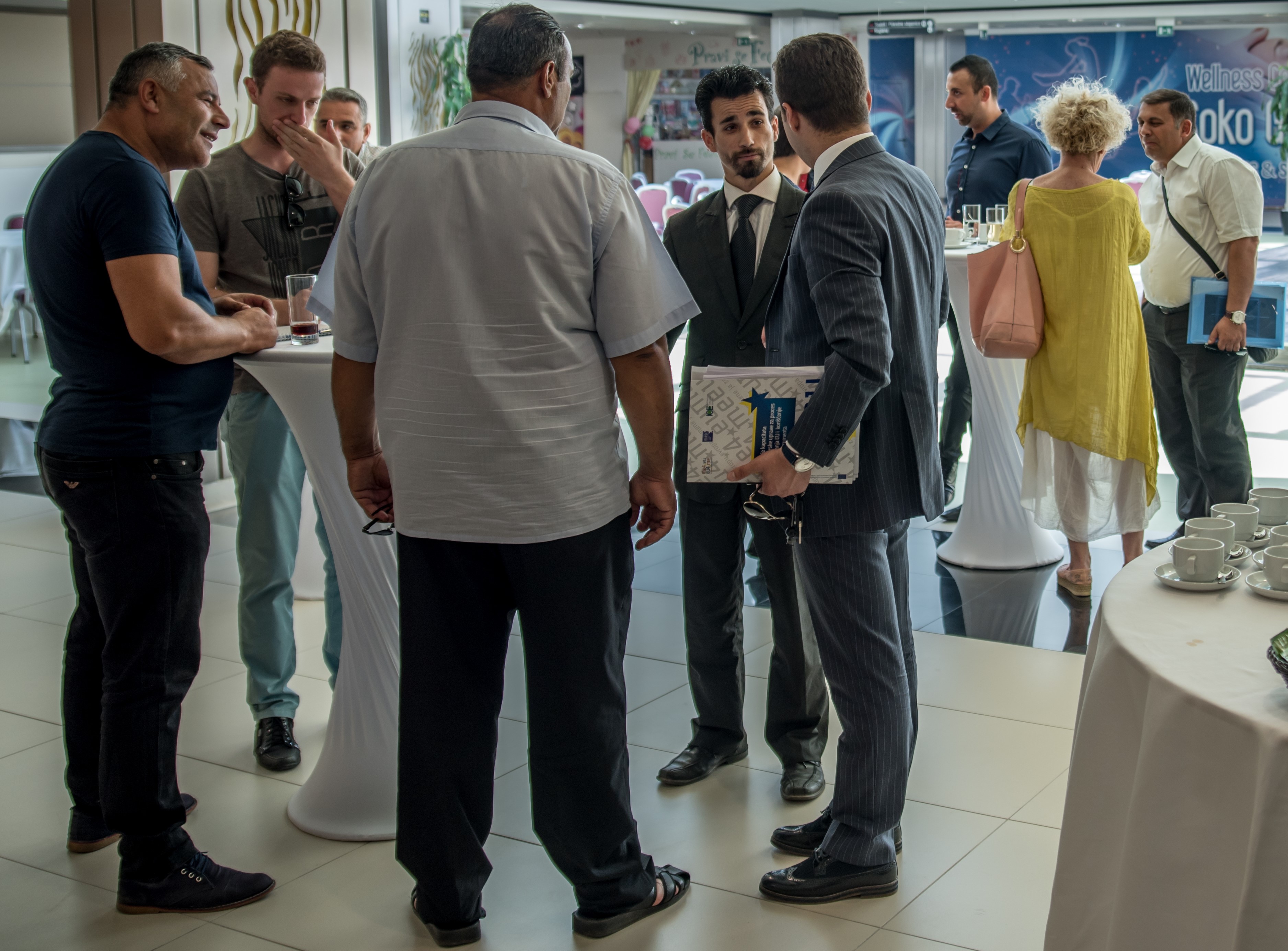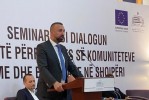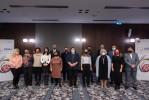Second National Platform on Roma Integration in Montenegro (Podgorica, 2017)
- 05 Jul 2017
- News

National Platform on Roma Integration Montenegro 2017
The second National Platform on Roma Integration for 2017 in Montenegro was held on 05 July 2017 in Podgorica, Montenegro by the Regional Cooperation Council’s Roma Integration 2020 Action Team in close cooperation with the National Roma Contact Point of Montenegro, Mr Leon Gjokaj, General Director at the Ministry of Human and Minority Rights. Around 70 participants attended, ranging from representatives of relevant ministries and other state bodies, representatives of local governments, a range of foreign governments, inter-governmental and international organizations present in Montenegro, including the European Union Delegation, and civil society organizations.
Since the Government of Montenegro submitted its annual 2016 monitoring report on the implementation of its Roma integration policies (Strategy and Operational Conclusions), the discussions at the National Platform revolved around the report. The main objective was to review the implementation of the Roma integration policies in 2016 and the first half of 2017, discuss main achievements and challenges and formulate conclusions and recommendations for the future work on the Roma integration policies.
The National Roma Contact Point of Montenegro Mr Gjokaj opened the meeting by recalling the institutional setup for the Roma integration policies (Strategy, Action Plan, Operational Conclusions, Commission for Monitoring of the Implementation) and highlighting recent activities in cooperation with the Roma Integration 2020 to properly budget and monitor. The mandate of the Commission for implementation, coordination and monitoring of the Roma integration policies was specifically highlighted. Mr Gjokaj stressed that increasingly institutions and non-Roma are involved in the Roma integration issue as a two-way process and that the Roma integration is an issue of Montenegro.
Mr Orhan Usein, Roma Integration 2020 Action Team Leader of the Regional Cooperation Council stressed that the National Platform is an activity mirroring similar consultative process at the EU Member States. He welcomed the Montenegro first annual monitoring report submitted to the Roma Integration 2020, stressing that the first cycle of annual reporting shall be used to improve the process further, facilitate establishing of unique monitoring system to feed all reporting requirements, and lead on establishing regional on-line data collection tool.
The EU Delegation representative Ms Barbara Rotovnik highlighted all the reports on Montenegro and specific recommendations for the integration of Roma as an important condition for country’s EU integration. She called the government to make concrete progress on the ground in improving the living conditions and the social inclusion of Roma, noting low level of inclusion and high drop-out rates of Roma at all levels of education and the commitment to institutionalize Roma teaching assistants by the end of 2017, the critical housing situation in certain municipalities and the need for housing interventions for domicile Roma, and the high reluctance of the private sector to employ Roma.
The representative of the civil society, Mr Samir Jaha from the NGO Young Roma, noted that some progress has been made, but mainly with foreign financial support and without sustainability in the domestic institutions. He also stressed the need to engage all municipalities where Roma live in the Roma integration policy and make sure domicile Roma benefit. He strongly suggested that the strategic course is shifted towards working with non-Roma (instead of only with Roma) in order to make sure tolerance is increased and Roma can integrate in the society.
After the opening remarks, representatives of line ministries presented the 2016 report in the areas of education, health, housing and civil registration, followed by discussions and recommendations.
The Regional Cooperation Council’s Roma Integration 2020 Action Team prepared a policy paper reflecting the discussions and particularly the recommendations from the meeting.






